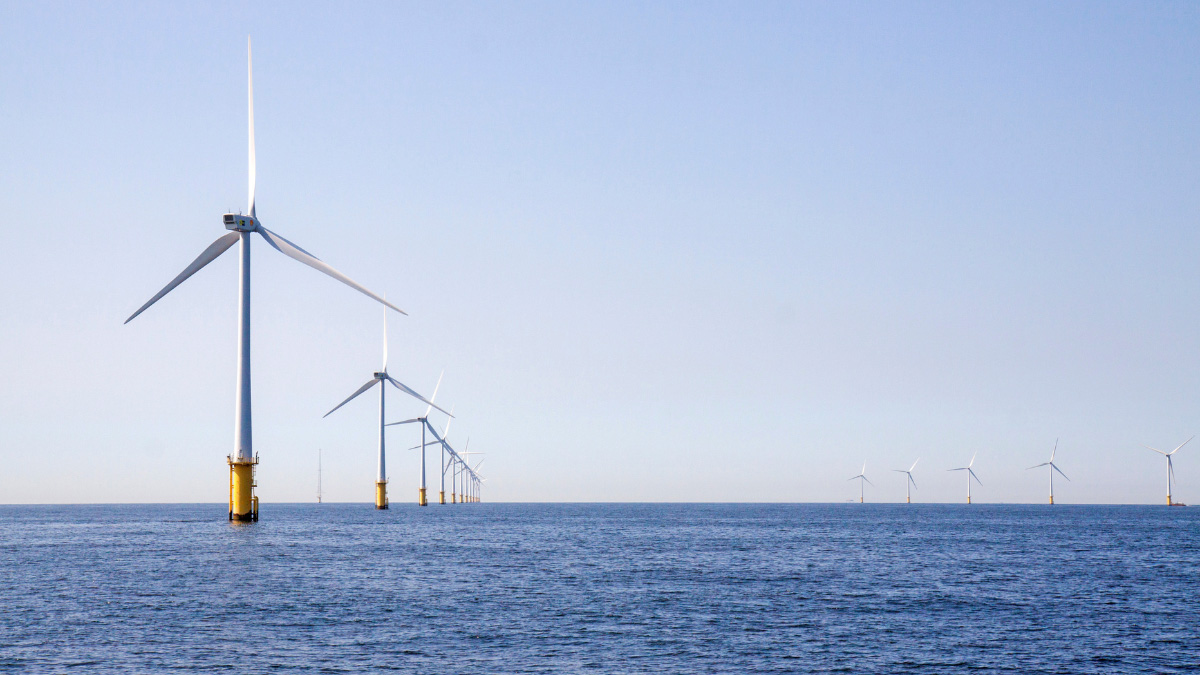 Naveena James, a volunteer for the IFoA’s Sustainable Finance Community, sat down with Dr. James Wilde, Chief Sustainability Officer (CSO) of Phoenix Group, the UK’s largest long-term savings and retirement business, to chat about sustainability.
Naveena James, a volunteer for the IFoA’s Sustainable Finance Community, sat down with Dr. James Wilde, Chief Sustainability Officer (CSO) of Phoenix Group, the UK’s largest long-term savings and retirement business, to chat about sustainability.
I started in a completely different direction. I was an academic working in nanotechnology, before joining McKinsey & Company, as a generalist strategy consultant. I worked with a number of clients in the energy sector, and found the sector to be absolutely fascinating. In 2003 I joined the Carbon Trust, an organisation set up by the UK Government to help businesses respond to climate change, which included developing low-carbon technologies.
I then joined Lloyds Banking Group to help them develop a climate change and sustainability strategy. Finally, I joined Phoenix Group as CSO to help develop their sustainable finance strategy. There is a huge opportunity to make a difference here, with £310bn assets under administration and over 13m customers.
For me, one of the main challenges is: how can we move at the pace that’s required? We are talking about a real fundamental change needed in the economy. If you look at the UK, in offshore wind we are still talking about moving from 10 gigawatts to 40 gigawatts over 10 years. In heat pumps, we are pursuing massive expansion, something like 27 thousand a year today, to 600 thousand a year over 10 years.
An estimated £2.7trn in investment over 2021-2035 is required to meet the UK Government’s Net Zero target. The biggest challenge therefore is: how do we create market conditions that make it attractive for that investment to flow?
The way we resolve this is by looking at changes that need to be made at the financial and regulatory level. It is the real economy, policies and market mechanisms that make it attractive for investors at scale. The money is there, what we need is a pipeline to enable investment at the right risk-return ratio.
At the highest level, my role is to enable the sustainability strategy at Phoenix. My job is to help facilitate the overall vision, but the delivery is done across the entire business. This includes, for example, examining the opportunities and risks of how we align our investment portfolio to net zero, and helping our colleagues in the investment area to do this.
How do we engage with our 13m customers? We can engage them on the impact their money is having, through investing in the future they want, but this can also help fill the significant savings gap which is emerging.
In all of this, my role is very much a facilitation one - making sure we have a comprehensive strategy across the group. I think another important area is collaboration. We can make a huge impact if we work in collaboration with Government, others in our sector, the different parts of the supply chain, and our broader market.
We saw many pledges at COP26, and a lot of target dates including 2030, and 2050. Phoenix Group has also committed to targets. How will the group achieve these targets? How do pathways to net zero come into these plans?
There are a number of components. First of all, we set net zero goals for 2050, but it is really important to have short term goals, and to make sure we are accelerating action in line with the urgency required. There are three levers we can pull to do that:
Climate is really important and there is a climate emergency that we need to act on in the next 10 years. We need increasing focus on the natural economy as well: that is, nature and biodiversity. We are seeing the evolution of the Taskforce on Nature-related Financial Disclosures (TNFD). Another key issue is human rights. We’re starting to look at this very carefully, across supply chains.
When we look at our broader customer base in the UK, we’re also thinking about how we can help people plan for their financial futures. In that regard, we have set up a think tank called Phoenix Insights.
It is key that sustainability is integrated into the core strategy and operations of an organisation. Actuaries are an important group in executing this. An example would be embedding climate change into the stress testing process, and the identification of short-, medium- and long-term risks and opportunities using scenario analysis.
When analysing the scenarios, we’re asking how they might affect our investment portfolio, and how we can embed that analysis into climate risk management practices.